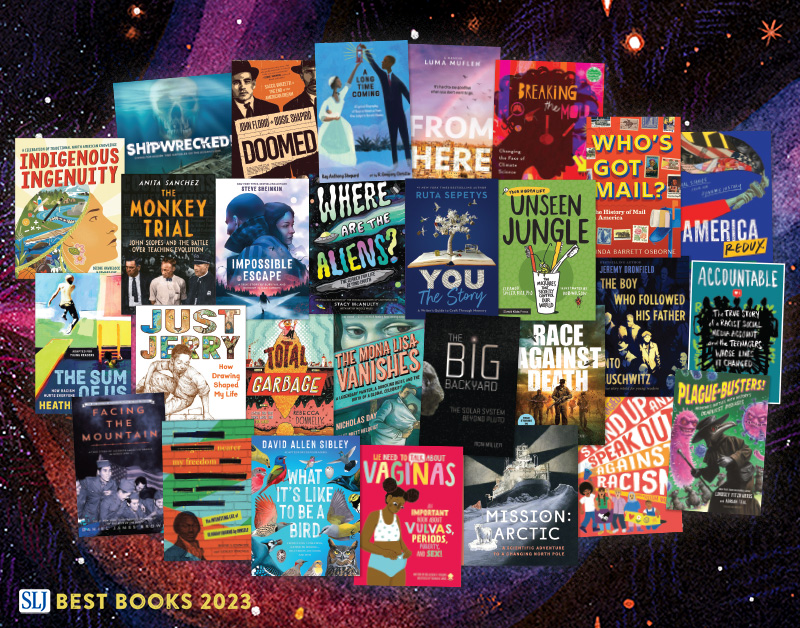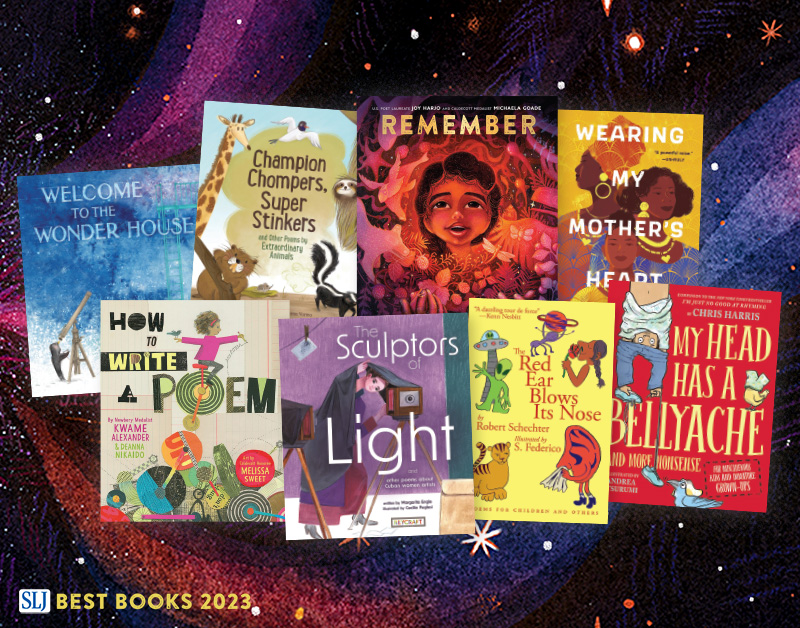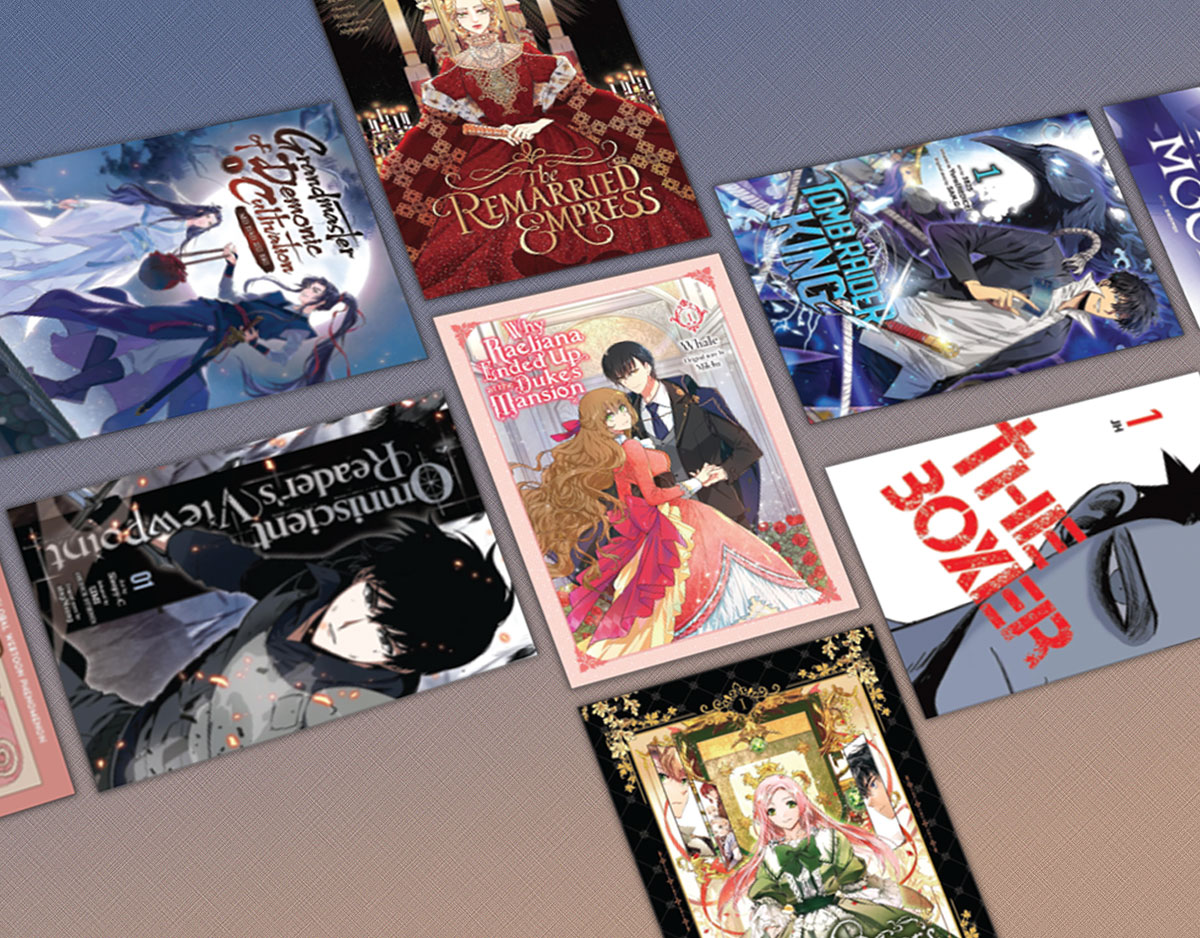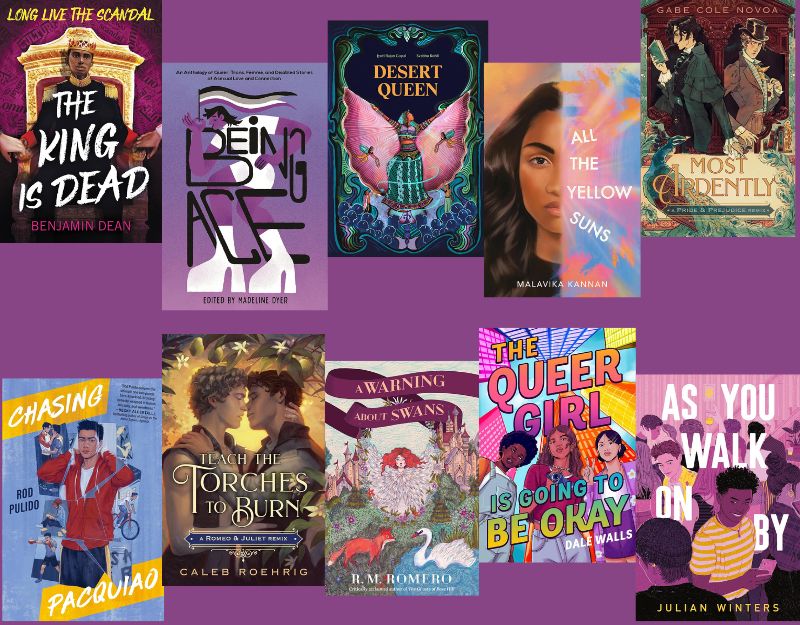Echo Echo: Reverso Poems about Greek Myths.
Echo Echo: Reverso Poems About Greek Myths
Written by Marilyn Singer and Illustrated by Josee Masse
Published by Dial in 2016
ISBN 978-0-8037-3992-5
Grades 3-8
Book Review
Turning her attention to Greek mythology, Marilyn Singer, a recent recipient of the NCTE award for Excellence in Children’s Poetry, offer readers a third title in her intriguing Reverso series. You’ve never heard of a Reverso? It is a poetic form of Singer’s own invention – a poem that can be read forwards, then backwards with an accompanying shift in perspective (and some in punctuation). While her first two titles in the series explore favorite fairy tales, Greek gods and goddesses are the focus of this collection: “Ancient Greece:/ An age of marvelous myths,/ gone, but not forgotten./ Heroes that rise and fall.” Now read in reverse: “Heroes that rise and fall,/ gone, but not forgotten./An age of marvelous myths: Ancient Greece.” The characters and plotlines are familiar, including, for example, Perseus and Medusa and Theseus and Ariadne, but the voices are novel, offering young readers the opportunity to juxtapose the diverse experiences of the characters. Each Reverso is accompanied by Josee Masse’s visual exploration of the duality, rendered in acrylic, and each poem is further contextualized by a concise annotation of the original myth. Singer uses the back matter to describe the form of the Reverso, to reflect on the significance of these classic myths, and to offer readers sources for more narrative retellings. A no-brainer pick for units on Greek Mythology, this collection and the other titles in the series also support cerebral and creative explorations of perspective, voice, poetic form, and storytelling.
Teaching Invitations: Ideas for Your Classroom
Duet Model Reading: The Myth and the Reverso. Locate retellings of the Greek myths featured in Marilyn Singer’s poems. Divide your students into small working groups and assign a myth to each group or let students group themselves by choosing a favorite myth. Students should read the retelling of the myth first followed by Singer’s Reverso version. Ask students to make connections between the two different texts – matching concepts, events and/or quotes from the narrative retelling with lines from the poem. The goal of this close reading is to deconstruct Marilyn Singer’s representation of this story in the much more concise form of poetry. Groups should share their findings with the whole class. See the Further Explorations section below for additional sources for these myths.
Dramatization. The poems in Echo Echo are ideally suited for performance by the students in your classroom. Pair students and assign each pair a poem to enact. Students should consider how they will use verbal and facial expression to emphasize the perspectives offered in their paired poems. Consider whether students might use simple costumes or props to enhance their performances. As an extension, you might ask students to write a monologue in which the character that they play elaborates on the perspective captured within the poem. Students can perform the poems along with the monologues they have crafted.
Author Study. Marilyn Singer was the 2015 recipient of the NCTE Award for Excellence in Children’s Poetry. She has written more than one hundred books for children – her poetry collections are varied and engaging. Invite students to learn more about her body of work by exploring her books, her website, online videos and interview transcripts (see the Further Explorations section below for suggested resources). What patterns in theme, language, and topics do your students note across Singer’s works? What can they learn about writing from this accomplished poet?
Writing a Reverso. Use the poems in Follow Follow, Mirror Mirror, and Echo Echo as mentor texts as students compose their own Reverso poems. Suggest to students that they compose their poems on sentence strips so that they can easily reverse line order as they draft and revise their poems. You will want to try writing this form yourself to get a sense of the complexity of this task. Share your writing process with your students. Then, work as a class to compose a short Reverso poem together. With this practice, students will be ready to compose their own.
Poetic Forms. Echo Echo can be used in the study of poetic forms, both classic and contemporary. You might want to begin this study with Paul Janeczko’s edited collections A Kick in the Head: An Everyday Guide to Poetic Forms and The Death of the Hat: A Brief History of Poetry in 50 Objects. Work with your students to develop a list of poetic forms and then divide your class up into pairs, assigning partners a particular poetic form for which they should become experts. Each partner should research the history of the form, compile examples of poems in the form, and write poetry in the form. As an extension, consider having your students survey the teachers and students in your school. Which poetic forms do teachers teach? Which forms are students familiar with and which are their favorite forms?
Greek Mythology: A Multimodal Multigenre Text Set Exploration. Work with your grade level team and/or your school or public librarian to develop a Solar System Model Text Set (see our Teaching with TextSets entry) for several of the myths found in Echo Echo. Be sure to include a variety of text types, including artifacts, such as ancient Greek urns that depict the myths. When working with the different text sets, students should consider variations and similarities in the narratives, the effects of different modalities, character development, and contemporary vs. classic interpretation. See the Further explorations section below for resources that will support your development of these text sets. You might also consider assembling text sets that allow group of students to consider how one particular god or goddess is portrayed across myths, again using these poems, narrative retellings of the myths, and artifacts.
Human Characteristics Across Time: A Multimodal Multigenre Text Set Exploration. In the back matter of Echo Echo, Marilyn Singer describes a function of mythology: ” Greek mythology also portrayed the strengths and weaknesses of human beings, such as courage, pride, vanity, curiosity, and endurance.” Singer’s Reverso poems could be included in texts sets that focus on these enduring human qualities. Work with your grade level team and/or your school or public librarian to create multmodal multigenre text sets comprised of stories, songs, and videos that focus on different human characteristics and qualities. Katie Egan Cunningham’s book Story: Still the Heart of Literacy Learning emphasizes this theme-based approach to text sets.
It’s All About Perspective. To support students with the critical skill of perspective-taking, read a series of books that offer varying perspectives on the events and experiences reflects in the text. Be sure to include picture books such as, Same, Same But Different by Jenny Sue Kostecki-Shaw, Mirror by Jeannie Baker, Voices in the Park by Anthony Browne, Anna Kang’s You Are (Not) Small, The Day the Crayons Quit by Drew Daywalt, and novels, such as Wonder by R.J. Palacio , Rebecca Stead’s Goodbye Stranger, and Rob Buyea’s Because of Mr. Terupt. After students have the opportunity to experience these texts, invite them to write a piece that represents multiple points of view.
Seeing Symmetry. The visual images in Echo Echoare equally as fascinating as the text. Beginning with the cover of the book, engage your students in a close reading of the illustrations. How has Josee Maase used symmetry to capture the different perspectives embedded in these myths? Collaborate with the art specialist in your school to offer students the opportunity to experiment with this technique. How can they create a symmetrical image and then modify it to emphasize similarities and differences? To extend this visual exploration, examine the illustrations in Mirrorby Jeannie Baker and Same, Same But Different by Jenny Sue Kostecki-Shaw. What techniques have these illustrators used?
Further Explorations
Online Resources
Author’s Website
Chicago Public Library: Author of the Month: Marilyn Singer
Poetry Friday: Two Sides to Every Story: Seven Impossible Things Before Breakfast
The MET: Ancient Greece
The British Museum: Ancient Greece
The Getty Villa
The Olympians: Graphic Novel Series by George O’Connor
Rick Riordan: Percy Jackson Series
Books
Baker, J. (2010). Mirror. Somerville, MA: Candlewick.
See our Classroom Bookshelf entry here.
Buyea, R. (2010). Because of Mr. Terupt. New York: Delacourte.
D’Aulaire, I. (1980). D’Aulaire’s book of Greek Myths. New York: Random House.
Daywalt, D. (2013). The day the crayons quit. Ill. O. Jeffers. New York: Philomel.
See our Classroom Bookshelf entry here.
Janeczko, J.B. (2015). The death of the hat: A brief history of poetry in 50 objects. Ill. by C. Raschka. Somerville, MA Candlewick Press.
See our Classroom Bookshelf entry here.
Janeczko, P.B. (2005). A kick in the head: An everyday guide to poetic forms. Ill. by C. Raschka. Cambridge, MA: Candlewick Press.
Kang, A. (2015). You are (not) small. Ill. By C. Weyant. Two Lions.
See our Classroom Bookshelf entry here.
Kostecki-Shaw, J.S. (2011). Same, same but different. New York: Henry Holt.
See our Classroom Bookshelf entry here.
Lunge-Larson, L. (2011). Gifts from the gods: Ancient words & wisdom from Greek & Roman mythology. Ill. G. Hinds. Boston: Houghton Mifflin.
Napoli, D.J. (2011). Treasury of Greek mythology: Classic stories of gods, goddesses, heroes & monsters.Ill. by C. Balit. National Geographic.
Osborne, M.P. (1989) Favorite Greek Myths. New York: Scholastic.
Palacio, R.J. (2012). Wonder. New York: Knopf.
Singer, M. (2010). Mirror mirror: A book of reversible verse. New York: Dutton.
Singer, M. (2013). Follow follow: A book of Reverso poems. New York: Dial.
Singer, M. (2011). A full moon is rising. Ill. by J. Cairns. New York: Lee & Low.
See our Classroom Bookshelf entry here.
Stead, R. (2015). Goodbye stranger. New York: Wendy Lamb Books.
See our Classroom Bookshelf entry here.
Filed under: Poetry Picture Books
About Erika Thulin Dawes
Erika is a professor of language and literacy at Lesley University. A former classroom teacher, reading specialist, and literacy supervisor, she now teaches courses in children’s literature, early literacy, and literacy methods. Erika is the co-author of Learning to Write with Purpose, Teaching with Text Sets, and Teaching to Complexity.
ADVERTISEMENT
ADVERTISEMENT
SLJ Blog Network
100 Scope Notes
Name That LEGO Book Cover! (#53)
A Fuse #8 Production
Cover Reveal and Q&A: The One and Only Googoosh with Azadeh Westergaard
Good Comics for Kids
K is in Trouble | Review
Politics in Practice
Fighting Public School Book Bans with the Civil Rights Act
ADVERTISEMENT








I love her reversos–such a clever and fun format, and so fun to read aloud.